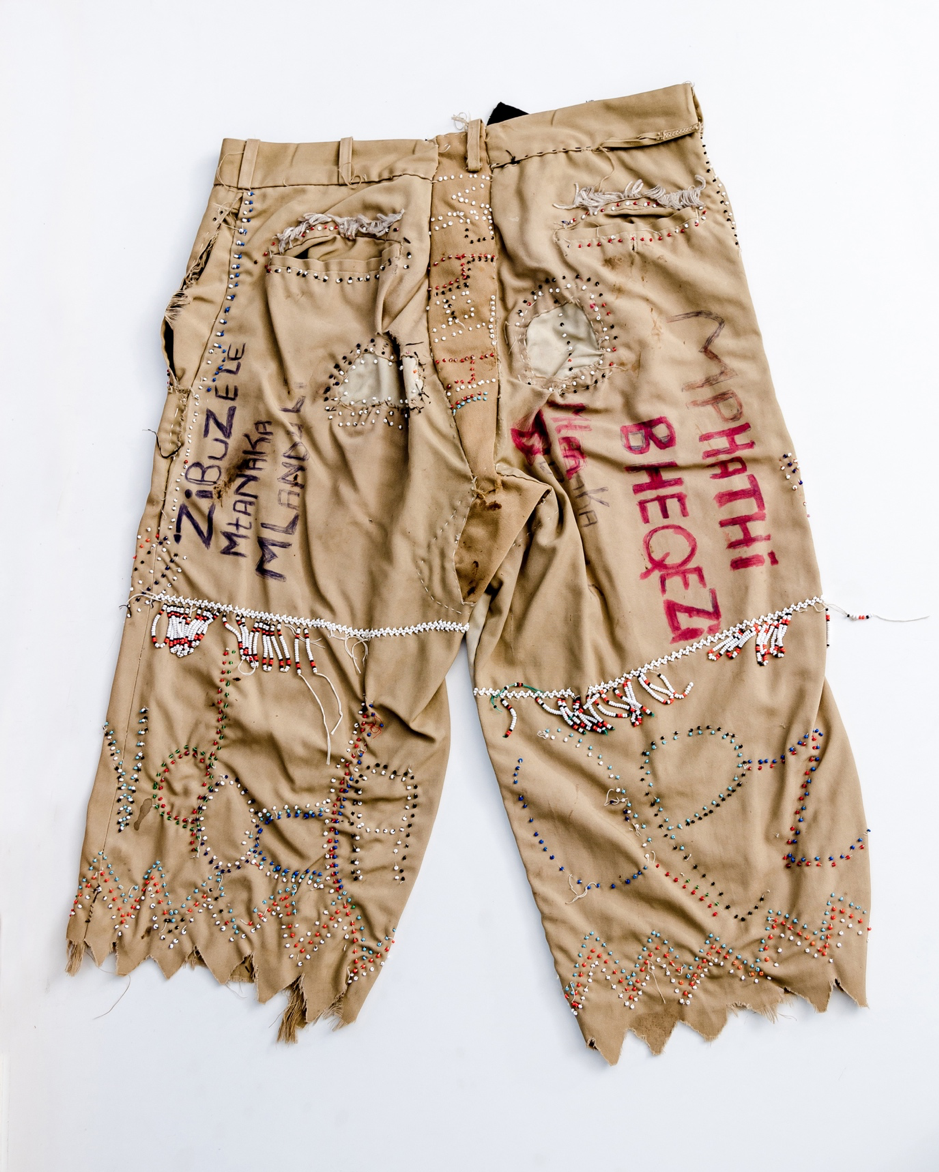Three Pairs of Trousers, or How to decolonise a Museum.

Recent doctoral graduate, Dr Erica de Greef has published an evocative visual essay in a timely publication that explores the complex intersections of dress and power, individualism and nationalism, and surveillance and activism in Fashion and Politics (2019), edited by Dr Djurdja Bartlett of the London College of Fashion. It presents a variety of historical and current contexts, from public and personal archives to fashion magazines, political dailies and social media, to acknowledge and assess fashion’s ambivalence within political, social and aesthetic moral systems.
The book’s contributors deal with “what sartorial practices do in the visual realm of the political,” writes editor Bartlett (2019:13). The authors, including acclaimed fashion academics Carol Tulloch, Barbara Vinken and Jin Ji Lim, explore four key concepts – Fashionable Politics, Reform or Revolution, Bodies and Borders, and Resistance or Recuperation.

A pair of beaded and repurposed cut-off khaki trousers or ibulukwe (SAM14394). Image courtesy of Andrew Juries.
In her chapter ‘Three Pairs of Khaki Trousers, or How to Decolonise a Museum’, De Greef draws on her doctoral thesis. Three pairs of khaki trousers shape the essay. The first is a pair of cotton men’s workwear trousers with classic pockets, a button-fly front and belt loops, purchased as a display prop years for the body-cast of Archie Khusu in the ‘Sotho’ cabinet of the South African Museum’s Ethnography Gallery, on display from the gallery’s inception in 1978 to its final closure in 2013. The second is a pair of well-worn khaki, wool-polyester trousers that had belonged to Rene Immelman (who had worn them during his tenure as chief librarian at the University of Cape Town from 1930 to 1970) that form part of the Cultural History Museum collection. The third is a pair of khaki polyester-cotton trousers, cut off below the knee with a rough, serrated, zigzag hem and extensive all-over beadwork. It was purchased by the South African Museum in the early 1990s in response to the interest in distinctive, albeit stereotypical, forms of African adornment.
De Greef shows how through slippages of both sartorial and museal boundaries, each pair troubles the museum’s practices to classify and stereotype and the objects. The three pairs of trousers bear witness to shifting political realities, and interrupt the ongoing productions and reproductions of the historical narratives and cultural identities in the museum. Each pair too, carries the potential to disrupt and rethink these practices.
Erica de Greef is currently co-founder of the African Fashion Research Institute (2019–present). Her thesis explored the divided and problematic dress/fashion collections in South African museums with the aim to decolonise museum collections and curation. This research was supported by NRF Funding through the Archive and Public Culture Research Initiative, University of Cape Town.
Bartlett, D. ed. (2019) Fashion and Politics, New Haven and London: Yale University Press.
LINK TO YOUTUBE:
https://www.youtube.com/watch?time_continue=11&v=xXgexat9LAg&feature=emb_logo